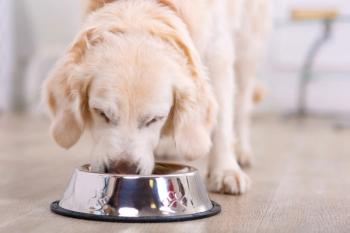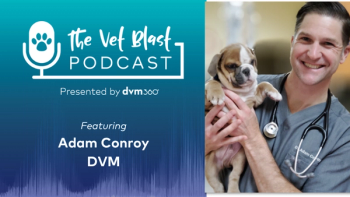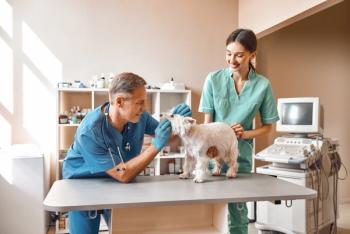
Tax breaks in the bailout bill
Talk about last-minute changes in tax laws that will affect veterinarians.
Talk about last-minute changes in tax laws that will affect veterinarians and their practices. In October, Congress passed and — 90 minutes later — the President signed into law a historic financial-markets rescue bill — the Emergency Economic Stabilization Act of 2008 (EESA).
Although its primary purpose is to help resolve the credit crunch in the financial markets, it's also one of the largest tax bills in recent years.
It enacted almost 300 changes to tax laws, creating tax breaks expected to save taxpayers a whopping $150 billion. The new law includes a much-anticipated alternative minimum tax (AMT) "patch," an extensive package of tax extenders, energy incentives, disaster relief and much more.
Designed specifically for small businesses and professionals who are, according to lawmakers, the ones with large amounts of deposits at risk, a portion of the bailout bill raised the FDIC and National Credit Union Share Insurance Fund deposit insurance limits from $100,000 per account to $250,000. But these increased levels expire after 2009.
More than 30 tax breaks that either expired at the end of 2007 or are soon to expire were extended under the act. Not all affect DVMs. Some might even appear frivolous, but others clearly will affect veterinarians and their practices, including the following:
The AMT
The bill boosts the Alternative Minimum Tax (AMT) exemption for individuals for 2008, while allowing personal nonrefundable credits to offset AMT and regular tax. In other words, the bill increases the income threshold where people begin to feel the effects of the AMT.
Although designed to prevent the wealthy from avoiding paying taxes, it has affected an increasing number of middle-class taxpayers, too, because it was not indexed for inflation. Each year, Congress passed a series of "patches" to boost the threshold.
To hold the number of taxpayers subject to the AMT at bay, Congress increased the 2008 AMT exemption for individuals to $46,200 (from $33,750) and that for married persons filing jointly to $69,950 (from $45,000). The law allows personal credits against the AMT, producing estimated savings of almost $62 billion over 10 years.
Leasehold improvements
Earlier tax-law changes shortened the cost-recovery period for leased-property improvements by a veterinary practice or business from 39 to 15 years. The new law extends that tax break to the end of 2009.
Similarly, Congress authorized a 15-year recovery for depreciation of certain improvements to retail space. The write-off applies to owner-occupied practices and businesses, as well as leased establishments.
Energy tax savings
The new law extends several energy-efficiency and energy property-tax incentives through 2013. Among them:
» An eight-year extension of the investment tax credits for expenditures for solar energy, as well as breaks for wind, geothermal and other alternative sources.
A tax credit offsets one's tax bill, as opposed to a deduction, which merely reduces taxable income.
» A tax deduction for making a commercial building more energy-efficient. The deduction is not for the cost of equipment or improvements, but is set at $1.80 per square foot of floor area for buildings achieving a 50 percent energy-savings target.
The savings must be accomplished through power-cost reductions for heating, cooling, ventilation, hot water and interior lighting systems.
Reduced deductions are available for veterinary practices achieving smaller energy efficiencies.
New markets tax credit
In today's credit crunch, extension of the new markets tax credit through 2009 may help practices secure financing that otherwise might be difficult. Created to increase investment in low-income communities, the credit equals 39 percent of the investment over seven years.
Special tax credit
For the more adventurous, EESA establishes a unique new tax credit for plug-in, electric-drive passenger vehicles and light trucks, ranging from $2,500 to $7,500.
If a new plug-in electric vehicle is not in the cards for a practice, perhaps a unique new fringe benefit for commuting workers will be of interest.
Under the new law, employers are allowed to provide employees who commute to work by bicycle limited fringe benefits to offset the costs of such commuting (e.g., storage).
That means tax-free to the recipient and tax-deductible for the practice.
More advantages
Here are some other EESA provisions that may benefit some:
» Enhanced charitable deductions for qualified computer contributions to schools.
» Accelerated depreciation for purchases of equipment used to collect, distribute or recycle a variety of commodities.
» Increased tax relief for victims of natural disasters, including write-offs for clean-up and enhanced deductions for some property.
(Many of the provisions are similar to those enacted for hurricanes Katrina, Rita and Wilma.)
» Extension through 2009 of a tax credit for qualified research expenditures, with the percentage increased to 14 percent.
It may not be over
There's still more tax legislation on tap.
At the top of the list is the question of whether to extend many of the temporary provisions enacted earlier as part of the Economic Growth and Tax Relief Reconciliation Act of 2001 (EGTRRA).
Those include the lower individual marginal income tax rates and relief of the marriage penalty.
EGTRRA also repealed the federal estate tax but only through 2010. Additionally, lower capital gains and dividend tax rates will sunset within the next few years.
The lion's share of EESA tax savings occurs in the 2008 and 2009 tax years.
Consequently, tax planning now takes on a special urgency for every veterinarian, veterinary practice and business wanting to take full advantage of these new and, in many cases, temporary tax breaks.
As always, professional guidance is recommended.
Battersby is a tax consultant in Ardmore, Pa.
Newsletter
From exam room tips to practice management insights, get trusted veterinary news delivered straight to your inbox—subscribe to dvm360.






